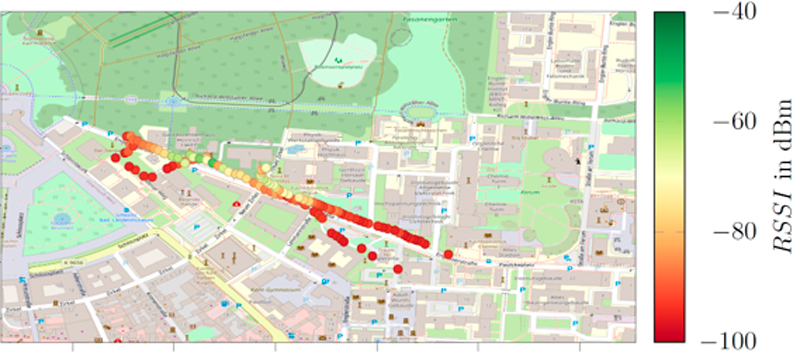Energy-saving LoRa Mesh Network through wake-on-receive
- Subject:Internet of Things (IoT)
- Type:Masterarbeit
- Date:ab 03 / 2024
- Tutor:
Energy-saving LoRa Mesh Network through wake-on-receive
Context
In today's data-centric economy, access to data is invaluable. Nevertheless, the lack of data remains a challenge. To close this gap, we are investigating novel approaches to provide resource-efficient sensors. Our focus? LoRa mesh networks - a promising technology that combines long range with low energy consumption.
Scope of the master thesis
Your mission is to reduce the energy consumption of LoRa mesh networks. You will go through the following steps:
Architectural design: you will start by creating a robust architectural concept. Imagine a blueprint that optimizes energy consumption without compromising data reliability. Possible entry points are wake-on-receive and improvements to the measurement algorithm.
Simulation adventure: Immerse yourself in our state-of-the-art LoRa network simulator. Simulate your proposed improvements, test their feasibility and refine your ideas.
Real-world testing: Take your innovations out of the virtual world. Our campus will be your testing ground. Compare the performance of your system with our existing synchronized LoRa mesh network.
Tasks
- Develop a concept for low-power LoRa mesh networks
- Implement the idea in the simulator
- Validation of the results in a field test
Requirements
- Motivation and interest in solving technical problems independently
- Interest in electronics and wireless transmission technologies
- Experience with programming (C++, Python)



